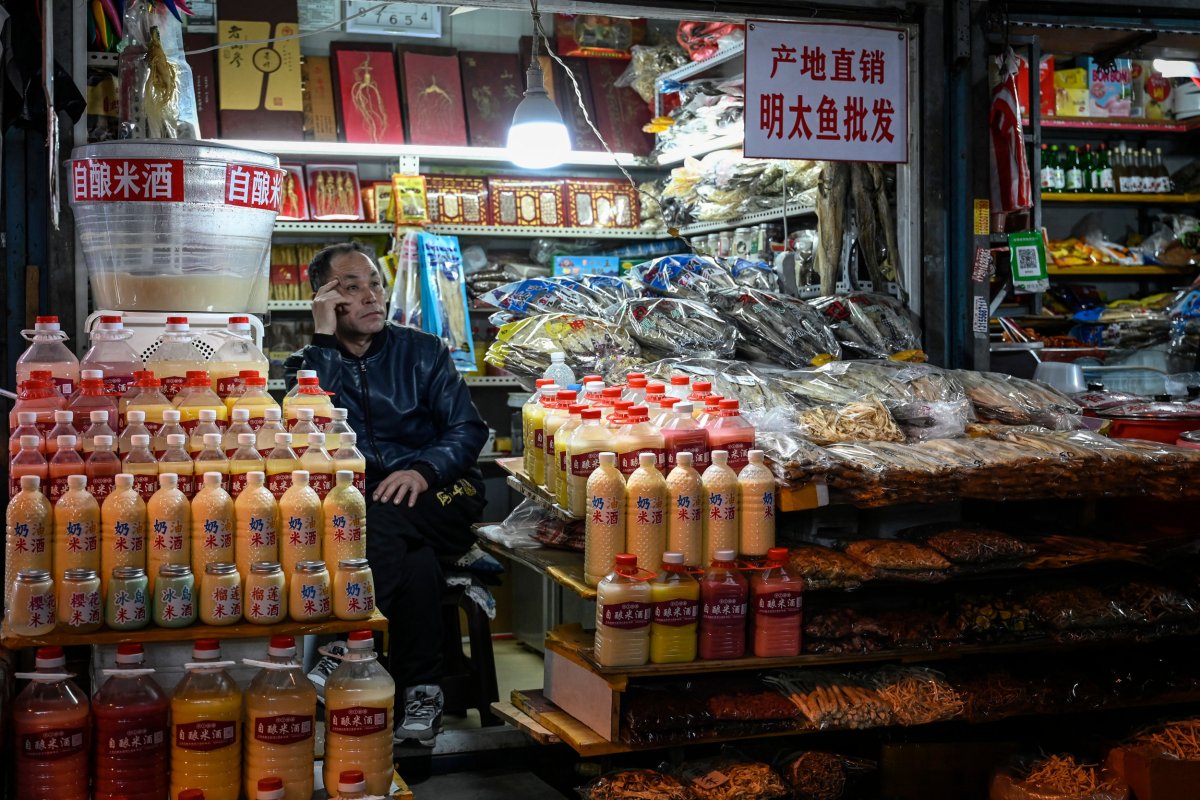A wage strike by unpaid North Korean factory staff working illegally in China may have led to the death of an official who was sent from Pyongyang to monitor their labor, according to a report this week.
South Korea’s Korea Times newspaper said on Monday that the visiting official was likely killed during a series of “violent protests” that erupted from January 11-15 in Helong, a city in the northeastern province of Jilin on the North Korean border.
At least one North Korean government official died while three others were seriously injured, said the paper, which quoted relevations by senior analyst Cho Han-bum of the Korea Institute of National Unification think tank. Cho said North Korean official were sent across the border to oversee garment factories.
AFP via Getty/KIM WON-JIN
Chinese authorities typically do not disclose information about the conditions of migrant workers from North Korea, a gray area in the country’s manufacturing industry that is technically forbidden under United Nations sanctions, which prohibit the hiring of North Korean nationals.
Media reports about such incidents also are rarely made public due to a lack of transparency on the part of textile factories and challenges identifying those involved. Newsweek was unable to independently verify Cho’s claim.
Wang Wenbin, a spokesperson for the Chinese Foreign Ministry, told reporters on Monday at a regular press conference in Beijing that there were no North Korean defectors living in China. Individuals who illegally enter the country for economic reasons are violattion of Chinese laws, he said.
China’s Foreign Ministry and North Korea’s embassy in Beijing did not immediately respond to separate written requests for comment.
According to Cho, who cited insiders aware of the matter, the workers in Helong were protesting the misappropriation of their salaries, which had been sent to North Korea’s ruling Workers’ Party without their consent or knowledge. Garment factory staff at about 15 sites were owed approximately $10 million for 4-7 years of unpaid labor.
The Korea Times, citing an unnamed South Korean official, said Seoul’s intelligence service confirmed that “accidents” involving North Korean workers occurred “due to poor working conditions”
In a separate interview on Monday with the specialist website NK News, Cho said the factories were managed by North Korea’s Defense Ministry.
Reports of unrest among North Korean workers in Jilin appeared to trace back to a newspaper interview by Ko Young-hwan, a former North Korean diplomat who defected to the South in 1991. Ko told Japan’s Sankei Shimbun this month that thousands of workers held strikes at clothing factories and fisheries processing plants over unpaid wages.

Jade Gao/AFP via Getty
According to NK News, Peter Jung, who heads the Justice for North Korea rights group, disputed the occurance of the strikes. Jung told the outlet that he confirmed with Chinese public security authorities and local workers that no such incident had taken place.
However, Jae-Pyoung Seo, the director of the Association of North Korean Defectors, told the website that the claims by Cho and Ko seemed plausible, citing disputes over unsettled salaries going back several years. Recent official notices on Chinese provincial websites also pointed to the issue of “wage arrears” among unspecified migrant workers, Seo said.
While the exact number of North Koreans working overseas remains unknown, The Korea Times reported one estimate of approximately 100,000 people, the majority of whom are believed to be working in China. NK News said the individuals were from relatively privileged families in Kim Jong Un’s regime.
Living conditions in isolated North Korea remain dire. Kim told party cadres this month that the country’s economy—unable to provide some sectors of society with basic necessities like food—was in a “terrible situation.”
The 40-year-old supreme leader blamed economic planners for failing to tackle the challenges of poverty with “revolutionary determination and courage.”
Uncommon Knowledge
Newsweek is committed to challenging conventional wisdom and finding connections in the search for common ground.
Newsweek is committed to challenging conventional wisdom and finding connections in the search for common ground.


